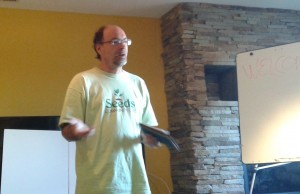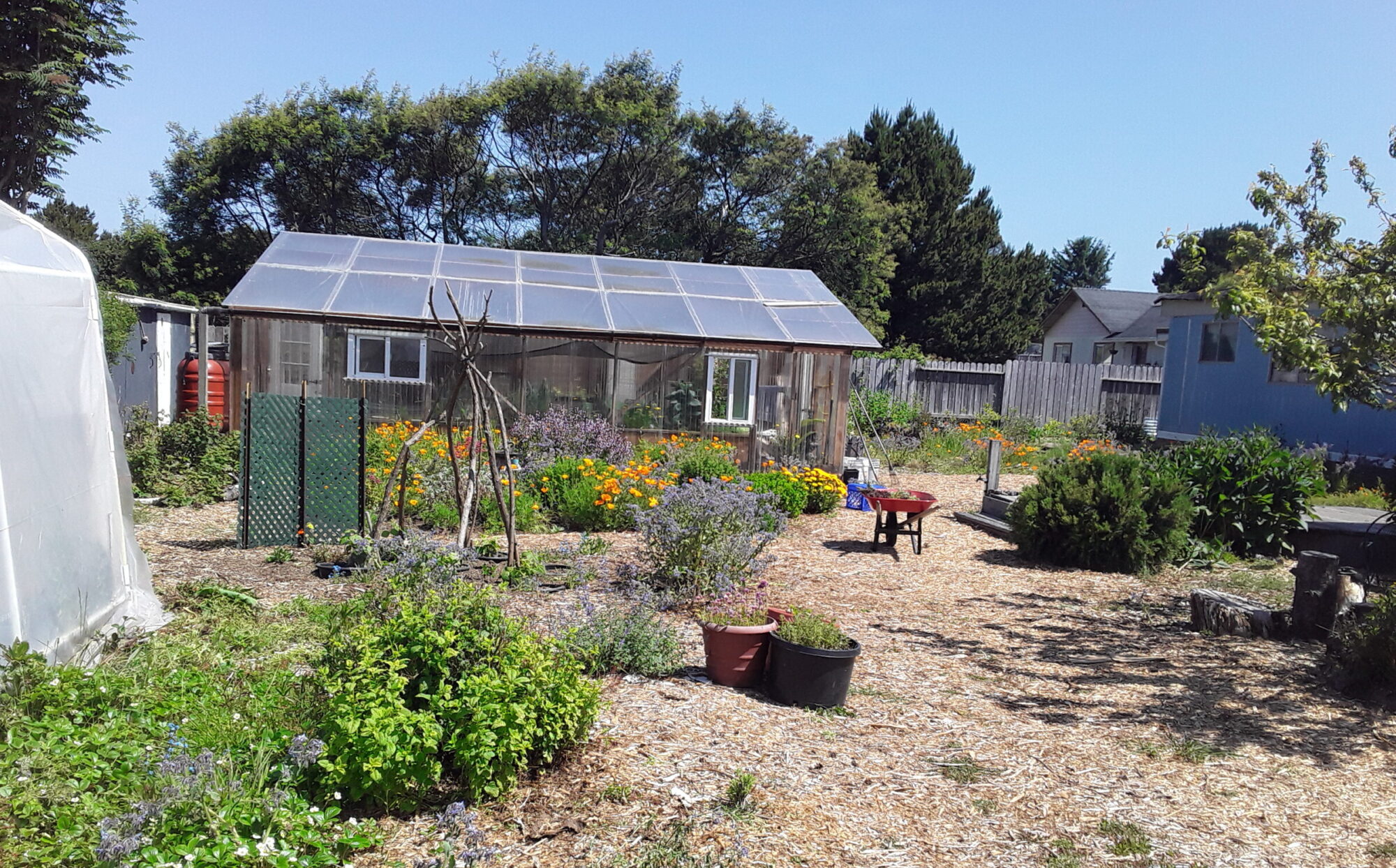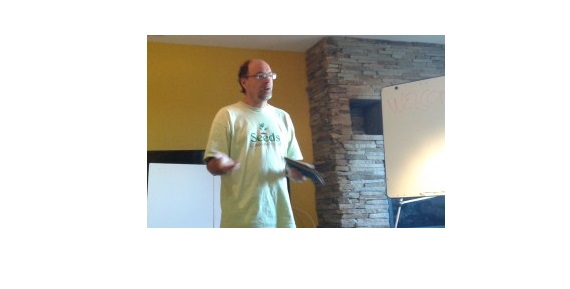
by Trudy Thomas
In a globalized economy, money flows in and out of the local community without so much as a goodbye. It comes from the outside and flows back out again from one corporate pocket to the other.
We obtain our living from them and spend our money on goods and services they provide. We buy homes, cars, products and services produced beyond our borders.
Instructor Steve Saint told Pikes Peak Permaculture’s design certification students the Colorado Springs economy has depended on outside money for a long time.
Related: Photo gallery from the weekend
Federal military spending has dominated the local economic pie for years. In fact, the 2015 edition of Engage, a publication by the Colorado Springs Business Alliance, named Fort Carson the largest employer in the state. Add employment figures from Peterson and Shriever Air Force bases and the U.S. Air Force Academy to Fort Carson’s 31,800 and the military employs nearly 60,000. Economists recommend diversifying with corporate giants, particularly technology firms. Both income streams originate from the outside and contribute little to local economic stability.
Saint suggested the problem stems from an economy based on capitalism. Capitalism creates large centralized systems in order to achieve the largest profit. It creates its own demand by telling consumers what they want or need. Prices are fixed to meet financial projections. The message is to consume.
“Wal-mart is what capitalism brings about,” Saint said. “The fundamental attitude is we want to drive everyone else out of business. It’s about amassing wealth rather than having an exchange of goods.”
The conventional system has very little to do with the average Joe. So-called economic indicators (high cost of living, wage and sales increases, job creation, housing starts, car sales, elevated stock market) are about investors “betting” on Wall Street hoping for a huge return on investment.
The current economic paradigm encourages resource consumption and depends on growth. It allows businesses and corporations to externalize their costs so they don’t have to pay the full cost of what they produce.
“Eventually, those costs have to be paid by somebody,” Saint warned. “And the planet will say, ’I’ll pay you back, you’re off the island.’”
Permaculture sees things differently. It calls for fair share of the surplus based on sustainability. It favors free markets with small decentralized systems that ask what is needed and find a price at the intersection of supply and demand. Rather than consuming resources unabated, the system operates on what nature provides.
So what can one do to turn around an entrenched system drunk on consumption?
Fortunately, there are several alternatives. Saint called it a reciprocity economy. It gives something freely or for someone else and trades or barters rather than spends money. The emphasis is on giving.
Local exchange trading systems (LETS) are another option. LETS operate with a virtual currency or time unit. Members list offers and wants and make a deal. The system allows members to spend or receive credits without the need for a direct trade. Positive and negative spending and receiving limits regulate member activity. It’s a system initiated and regulated by a community of local people. It also empowers members to find and use talents that are of no value to a conventional economy.
“There is hope,” Saint said. “That’s what we Permies are all about. Eventually, you’ll want me in your neighborhood to help you survive in the future.”
Visit People’s Exchange Pikes Peak or join its Facebook group to see what a LETS system looks like.


